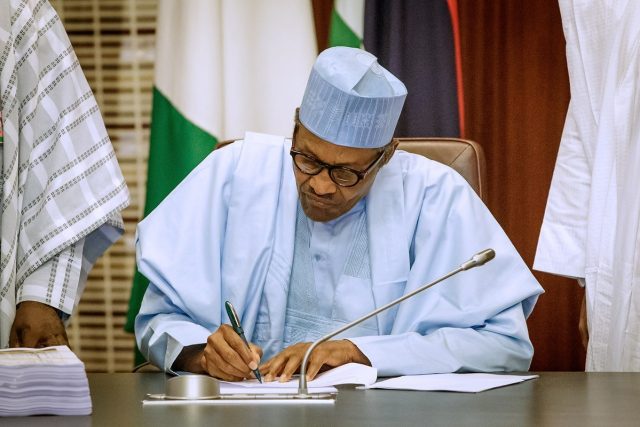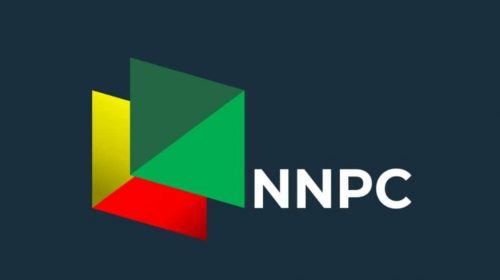Buhari Presents N10.33tr 2020 Budget At 7.5% VAT Revenue

The Federal Government of Nigeria has presented a budget of N10.33tr for the 2020 fiscal year, to the joint session of the National Assembly.
Addressing the joint session of NASS, President Muhammadu Buhari in line with the constitutional requirement gave a briefing of the current budget that came into effect in June this year due into late passage.
However, the projection of the 2020 expenditure document is already in the deficit of about N2.2 trillion.
A major concern in the figures of the budget is the projected total revenue earnings of the government that is at N8.155tr as against the government admitted earning of N2.02tr or paltry 58% of the 2019 budgeted earning. How the government would up the earning more than thrice to meet the target is yet not too clear.
Due to our over reliance on imports for finished goods, raw materials and machinery, the budget which pegged the naira exchange rate at N305 to one US dollar wasn’t cheery.
It didn’t also give an inkling of how the huge revenue would be realized.
Another curious fact of the budget was also basing the government earning on 7.5% VAT as against its present 5%. The complexity in the VAT projection is the fact that the proposal approving that new VAT regime has not become a law yet.
President Buhari had admitted also that VAT earning in 2019 was far below expectation.
On capital releases for the 2019 budget, he said that started in 2019 Q3 and as at September, only N294.64b had been released, as he assured that he would authorise a fell swoop release of another N600b by end of the year, which is more than double of what was released as at September.
Still on the 2019 spending, the president admitted that: “On the expenditure side, 2019 Budget implementation was also hindered by the combination of delay in its approval and the underperformance of revenue collections. As such, only recurrent expenditure items have been implemented substantially. Of the prorated expenditure of N4.46 trillion budgeted, N3.39 trillion had been spent by June 30, 2019.”
On how the government would realize money to fund the budget, the federal government said: “We have adopted a conservative oil price benchmark of US$57 per barrel, daily oil production estimate of 2.18 mbpd and an exchange rate of N305 per US Dollar for 2020.
“We expect enhanced real GDP growth of 2.93% in 2020, driven largely by non-oil output, as economic diversification accelerates, and the enabling business environment improves. However, inflation is expected to remain slightly above single digits in 2020.”
With this promise of driving budget from the non-oil sector, the heavy reliance on oil revenue, barrels of production per day and the international crude price benchmark was still the fulcrum of the expected revenue.
Buhari said: “This Finance Bill has five strategic objectives, in terms of achieving incremental, but necessary, changes to our fiscal laws. These objectives are:
a. Promoting fiscal equity by mitigating instances of regressive taxation;
b. Reforming domestic tax laws to align with global best practices;
c. Introducing tax incentives for investments in infrastructure and capital markets;
d. Supporting Micro, Small and Medium-sized businesses in line with our Ease of Doing Business Reforms; and
e. Raising Revenues for Government






Leave a Reply